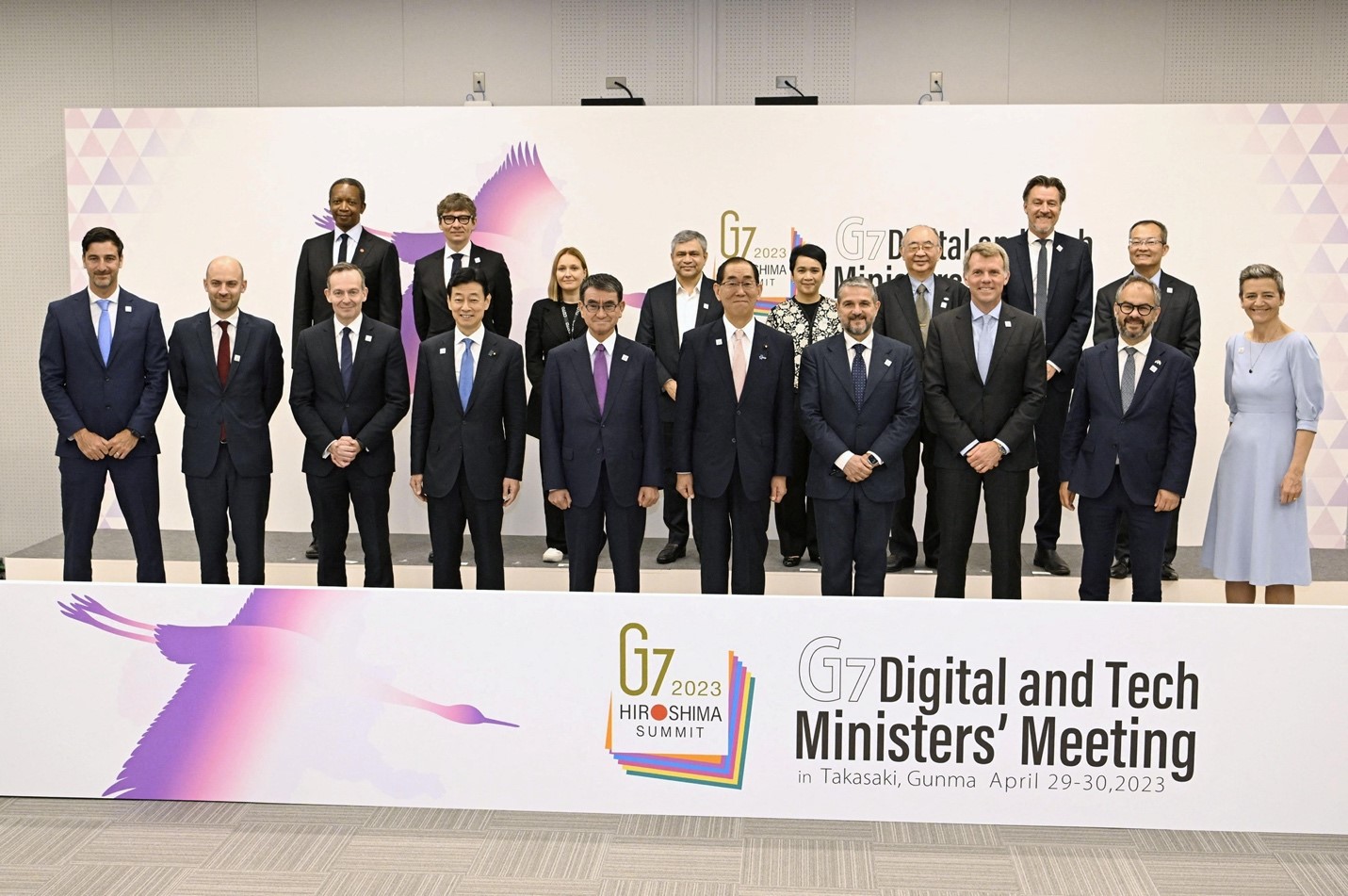Description

Disclaimer: Copyright infringement not intended.
Context
- Group of Seven advanced nations should adopt "risk-based" regulation on artificial intelligence, their digital ministers agreed.
Highlights of the meeting
- Ahead of Europe’s AI Act that could establish a benchmark for how national governments regulate artificial intelligence tools, G7 has said that a “risk-based” regulation of AI could be a potential first step towards creating a template to regulate emerging tools (Open AI’s ChatGPT and Google’s Bard).
- Such regulation should "preserve an open and enabling environment" for the development of AI technologies and be based on democratic values, G7 ministers said.
- The agreement sets a landmark for how major countries govern AI amid privacy concerns and security risks.
- They agreed to convene future G7 discussions on generative AI which could include topics such as governance, how to safeguard intellectual property rights including copyright, promote transparency, address disinformation" including information manipulation by foreign forces.
- Besides intellectual property concerns, G7 countries recognised security risks.
.jpeg)
Risk-based approach
- It could involve graded regulation.
- For example: a lesser compliance burden on developers or users of AI tool deployed in areas such as the word processing business or generating music, as compared to the regulatory supervision on, say, a tool aiding doctors in medical diagnosis.
Global policy responses to emerging tools
EU
- EU has taken a predictably tough stance, with the proposed AI Act segregating artificial intelligence by use-case scenarios based broadly on the degree of invasiveness and risk.
- Italy has become the first major Western country to ban ChatGPT out of concerns over privacy.
- EU had taken steps to regulate AI back in 2018, and the AI Act due next year is a keenly awaited document.
The UK
- It is on the other end of the spectrum, with a decidedly ‘light-touch’ approach that aims to foster, and not stifle, innovation in this nascent field.
Japan
- Japan too has taken an accommodative approach to AI developers.
China
- It has been developing its own regulatory regime.
- The country’s federal Internet regulator put out a 20-point draft to regulate generative AI services, including mandates to ensure accuracy and privacy, prevent discrimination and guarantee protection of intellectual property rights.
India
- It has said that it is not considering any law to regulate the artificial intelligence sector.
- Although AI “had ethical concerns and associated risks”, it had proven to be an enabler of the digital and innovation ecosystem.
US
- Department of Commerce flagged the possibility of floating an auditing system to assess whether AI systems include harmful bias or distort communications to spread misinformation or disinformation.
- White House Blueprint: published by the White House Office of Science and Technology Policy (OSTP) in 2022, proposing a nonbinding roadmap for the responsible use of AI. The Blueprint spelt out five core principles:
- protecting users from unsafe or ineffective systems;
- protecting users against discrimination by algorithms
- users being protected against abusive data practices via built-in protections, and having agency over the use of their data;
- users knowing that an automated system is being used, and comprehending how and why it contributes to outcomes that impact them; and
- users being able to opt out, and have access to a person who can quickly consider and remedy problems.

Concluding remarks
- Tech leaders Elon Musk, Apple co-founder Steve Wozniak have called for a six-month pause in AI development, saying labs are in an “out-of-control race” to develop systems that no one can fully control.
- They have also said labs and independent experts should work together to implement a set of shared safety protocols.
MUST READ ARTICLES:
About G7: https://www.iasgyan.in/daily-current-affairs/g7-ministers-meeting-on-climate-energy-and-environment
About Artificial Intelligence: https://www.iasgyan.in/blogs/basics-of-artificial-intelligence
|
PRACTICE QUESTION
Q) Rapid advances in artificial intelligence (AI) such as OpenAI’s ChatGPT are complicating governments’ efforts to agree on laws governing the use of the technology. Discuss the latest steps national and international governing bodies are taking to regulate AI tools. (250 words)
|

https://www.reuters.com/markets/europe/g7-should-adopt-risk-based-ai-regulation-ministers-say-2023-04-30/









